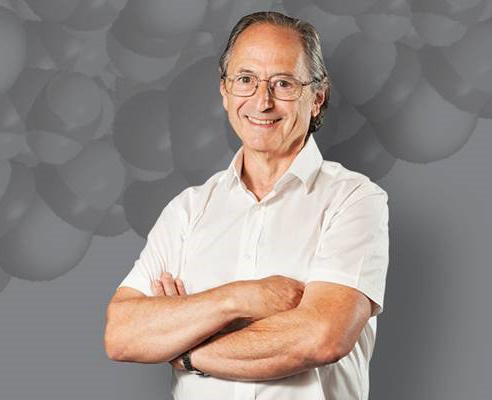Latest News Archive
Please select Category, Year, and then Month to display items
01 March 2023
|
Story Alicia Pienaar
 Prof Mathys Labuschagne is the Head of the Clinical Simulation and Skills Unit within the School of Biomedical Sciences in the Faculty of Health Sciences
Prof Mathys Labuschagne is the Head of the Clinical Simulation and Skills Unit within the School of Biomedical Sciences in the Faculty of Health Sciences
The Dean of the Faculty of Health Sciences, Prof Gert van Zyl, invites you to the inaugural lecture of Prof Mathys Labuschagne, Head of the Clinical Simulation and Skills Unit within the School of Biomedical Sciences in the Faculty of Health Sciences.
Subject: Clinical Simulation: Quo Vadis?
Venue: Auditorium, Equitas Building, Bloemfontein Campus
Date: 8 March 2023
Time: 17:30
RSVP on or before Friday 3 March 2023
Light refreshments will be served after the inaugural lecture.
About Prof M Labuschagne
Prof Mathys Labuschagne is the Head of the Clinical Simulation and Skills Unit within the School of Biomedical Sciences in the Faculty of Health Sciences at the University of the Free State. He completed his MB ChB degree and qualified as an ophthalmologist in 2006.
He developed an interest in health professions education and obtained a PhD in Health Professions Education in June 2012. The title of his thesis was: Clinical Simulation to enhance undergraduate medical education and training at the University of the Free State.
Prof Labuschagne was appointed Head of the Clinical Simulation and Skills Unit at the University of the Free State. The facility is utilised for undergraduate and postgraduate clinical simulation training, as well as interprofessional training and research. He has a special interest in simulation as training tool, precision skills training, and mastery of learning and simulation as tool to prepare students for interprofessional education and collaborative practice.
Prof Labuschagne is part of a multi-institutional consortium that developed the MySkills Medic app. It is a clinical procedural skills application aimed at graduating medical students, interns, and community-service doctors. He was appointed as a member of the Ophthalmology Foundation Education Simulation Subcommittee (affiliate of the International Council of Ophthalmology) tasked with developing a white paper to guide simulation training for ophthalmologists. He is involved in postgraduate supervision for master’s and PhD students in HPE.
Nobel Laureate for Chemistry to visit UFS
2017-10-28

Prof Michael Levitt will be hosted by the UFS from
14 to 16 November 2017, where he will present the
first lecture in the Vice-Chancellor’s
Prestige Lecture Series.
Photo: Supplied
It is a great honour for the University of the Free State (UFS) to host Prof Michael Levitt, recipient of the 2013 Nobel Prize for Chemistry, which he shares with Marti Karplus and Arieh Warshel.
The trio received the Nobel Prize for their development of multiscale models used for complex chemical systems. “Being awarded the Nobel Prize is a unique and marvellous experience that no one can prepare for or could in any way know what to except,” said Prof Levitt during his 2013 Nobel Lecture at the Stanford University School of Medicine.
First lecture in Vice-Chancellor’s lecture series
The South African-born Nobel Laureate and Academy of Science of South Africa (ASSAf) Visiting Scholar will present the first lecture, Birth and Future of Multiscale Modelling of Macromolecules, in the Vice-Chancellors Prestige Lecture Series at the UFS on 14 November 2017. Prof Levitt is well-known for developing approaches which predict macromolecular structures.
He is one of many distinguished academics invited annually by ASSAf to deliver lectures as part of the Distinguished Visiting Scholars’ Programme, presented by ASSAf at universities across the country.
Pioneer in research of molecular dynamics
Prof Levitt is a biophysicist and a professor of Biology at Stanford University. He was one of the earliest researchers to conduct research on molecular dynamics stimulations of DNA and proteins. “My post-prize ambitions are twofold and probably inconsistent: (1) Work single-mindedly as I did in the mid-1970s on hard problems, and (2) Help today’s young scientists gain the recognition and independence which my generation enjoyed,” said Prof Levitt.